Advice for first-year grad students
August is nearing its end, which means students across the country are returning to school — and some are starting their first year of graduate school. I remember how excited I was to start grad school, but I was also nervous about the unknowns. Would courses be too challenging for me? How would I find a lab?
This week, I talked with two graduate students to get their tips for that crucial first year. Tonu Pius is in his second year of grad school at the University of Chicago, and Cheyanne Frosti is in her fourth year at Boston University. They answered questions about their first year and how to overcome challenges faced along the way.
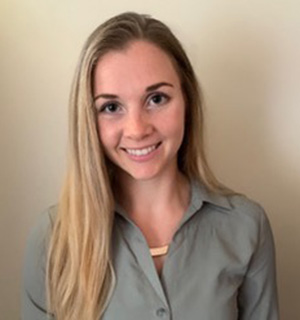
While everyone will have a different experience, I hope Pius and Frosti’s advice will help you feel more prepared for the journey ahead.
What were the biggest challenges in your first year, and how did you overcome them?
Frosti said her two biggest challenges were deciding on a research direction and overcoming gaps in her knowledge base. Every graduate experience is different, and it can be hard to enter a program knowing exactly what you will be working on or when you will be graduating.
“Choosing the right lab and focus for my dissertation was overwhelming, especially when I wanted a detailed five-year plan,” Frosti said. “I learned that research directions develop over time and it’s important to trust the process and celebrate small achievements.”
Courses can also be daunting. Many graduate programs include core courses in the first year that cover a variety of topics, often some outside the program focus, to give students a solid scientific base. Frosti said she felt behind in some areas but found ways to address those gaps.
“I focused on my strengths, like protein chemistry, and sought help in areas where I was less confident, such as genetics,” she said. “This approach not only built camaraderie with my peers but also reinforced that we’re all learning and growing as young scientists.”
Pius started graduate school already familiar with the lab he intended to join and the campus environment, but he faced a different challenge — how to pursue his non-research interests in the grad school environment.
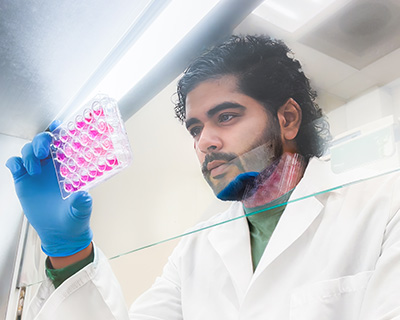
“I’ve always loved art, photography, and videography,” he said, “but I wasn’t sure how to integrate those passions into a scientific setting.”
Instead of focusing only on academics and research, Pius found opportunities to embrace his creative side. He managed the University of Chicago microbiology department’s X (formerly Twitter) account and produced short films to showcase the department’s research. Pius encourages others to pursue their outside interests even during the transition into graduate school.
“Overcoming the challenge of finding a creative outlet in a scientific environment taught me the importance of embracing what you love,” Pius said.
Were there aspects you found less challenging?
For Pius, attending classes and making friends was a rewarding part of the first-year experience. He enjoyed getting to know other students, each with their own interests and areas of expertise, and learning from them.
“Being surrounded by such enthusiasm has not only enhanced my knowledge but also made me love this community even more,” he said.
Frosti said she found the time demands of her first year less challenging than expected, and she was able to maintain a decent work–life balance. This can depend on the lab environment, and Frosti found a lab that offered flexibility to help maintain that balance.
“Leveraging the support of peers and mentors also helped me stay focused and manage stress effectively,” she said.
What other advice do you have for first-year grad students?
Frosti advises graduate students to carefully consider their choice of lab and to prioritize lab environment over the research topic. Lab mates and research advisor are the people grad students interact with the most, and their support can be critical to getting through the ups and downs of graduate school.
Some self-reflection may be needed to figure out what kind of environment works best. Frosti said it can be helpful to ask yourself questions like if you prefer structure or flexibility, large teams or smaller groups, and collaborative work or independence.
“Remember, you’ll acquire valuable skills in your field regardless of your dissertation specifics,” she said. “It’s challenging to focus on good science if you’re unhappy in your environment, so make it the priority.”
Frosti also encourages first-year grad students to pursue career development activities and passions beyond dissertation work. Activities such as workshops, networking events or even internships can help long-term career growth.
“Building a diverse skill set and expanding your professional network can reveal career paths you might not have considered,” she said. “This was certainly my experience with science policy, which I hadn’t even known about in my first year but which now fuels my passion.”
Pius wishes he had taken more risks during his first year, particularly in exploring unfamiliar areas of science — including those beyond the biomedical sciences. He took a variety of courses including one in pedagogy that sparked an interest in teaching.
“Grad school is about expanding your horizons, and I wish I had ventured into more diverse subjects,” he said. “Looking back again, I see that the more risks you take, the more your grow and achieve.”
Enjoy reading ASBMB Today?
Become a member to receive the print edition four times a year and the digital edition monthly.
Learn moreFeatured jobs
from the ASBMB career center
Get the latest from ASBMB Today
Enter your email address, and we’ll send you a weekly email with recent articles, interviews and more.
Latest in Careers
Careers highlights or most popular articles
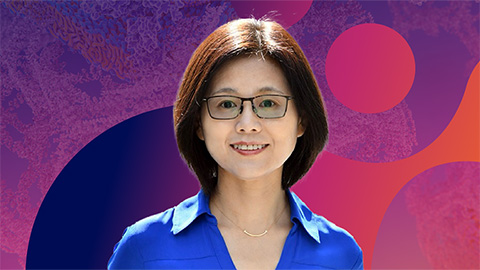
Exploring the link between lipids and longevity
Meng Wang will present her work on metabolism and aging at the ASBMB Annual Meeting, March 7-10, just outside of Washington, D.C.

Upcoming opportunities
Calling all biochemistry and molecular biology educators! Share your teaching experiences and insights in ASBMB Today’s essay series. Submit your essay or pitch by Jan. 15, 2026.

Defining a ‘crucial gatekeeper’ of lipid metabolism
George Carman receives the Herbert Tabor Research Award at the ASBMB Annual Meeting, March 7–10, just outside of Washington, D.C.
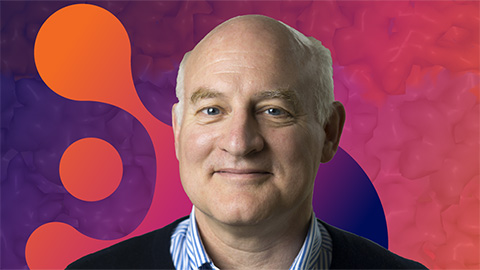
Building the blueprint to block HIV
Wesley Sundquist will present his work on the HIV capsid and revolutionary drug, Lenacapavir, at the ASBMB Annual Meeting, March 7–10, in Maryland.
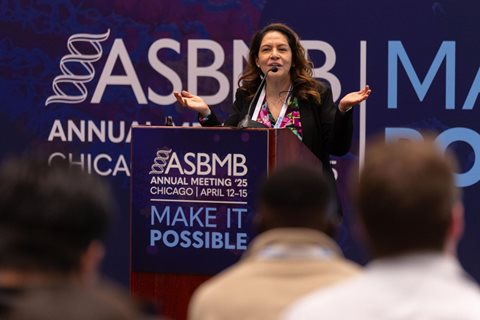
Upcoming opportunities
Present your research alongside other outstanding scientists. The #ASBMB26 late-breaking abstract deadline is Jan. 15.
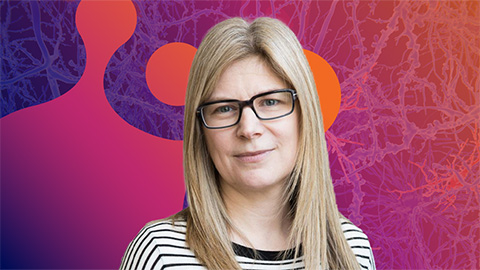
Designing life’s building blocks with AI
Tanja Kortemme, a professor at the University of California, San Francisco, will discuss her research using computational biology to engineer proteins at the 2026 ASBMB Annual Meeting.

